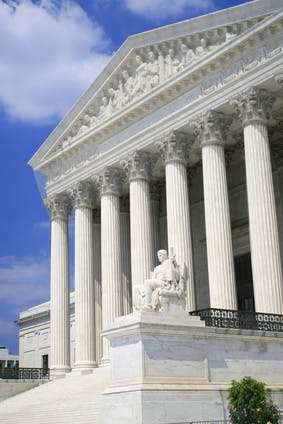By Eric B. Meyer
Mid-morning on Monday, the Internet broke shortly after the U.S. Supreme Court issued its 5-4 decision in Burwell v. Hobby Lobby Stores, Inc..
Jeez, I’m still cleaning out my Twitter, LinkedIn and Facebook feeds.
In case your wifi, 4G, 3G, dial-up, TV, radio, and other electronics picked the wrong day to quit, the long and short of yesterday’s Supreme Court decision is this: Smaller, closely held (think: family owned) companies don’t have to provide Obamacare access to birth control if doing so would conflict with an employer’s religious beliefs.
3 ways it affects your workplace
So, how does yesterday’s decision affect your workplace? Here are three (3) ways:
- The court’s opinion creates a Obamacare exception for closely held business. If your company isn’t closely held, then there’s nothing to see here.
- The Hobby Lobby decision does not allow employers (closely held or otherwise) to discriminate against employees under the guise of a religious practice. In the dissent, Justice Ruth Bader Ginsburg pondered, “Suppose an employer’s sincerely held religious belief is offended by health coverage of vaccines, or paying the minimum wage or according women equal pay for substantially similar work. Does it rank as a less restrictive alternative to require the government to provide the money or benefit to which the employer has a religion-based objection?” Well, no. The majority recognized that “the Government has a compelling interest in providing an equal opportunity to participate in the work force without regard to [a protected class], and prohibitions on [discrimination] are precisely tailored to achieve that critical goal.“
- The Court’s opinion is a good reminder about religious accommodations in the workplace. Title VII requires covered employers to make reasonable accommodations for a worker’s sincerely held religious beliefs unless doing so would impose an undue hardship on business operations. The “sincerity” of an employee’s stated religious belief is usually not in dispute. (More on that here). And, in these situations, an employer should not judge the employee’s religious belief to determine whether it is plausible. Rather, the focus should usually be on whether the accommodation would impose an undue hardship — because the burden there is rather low.
This was originally published on Eric B. Meyer’s blog, The Employer Handbook.
